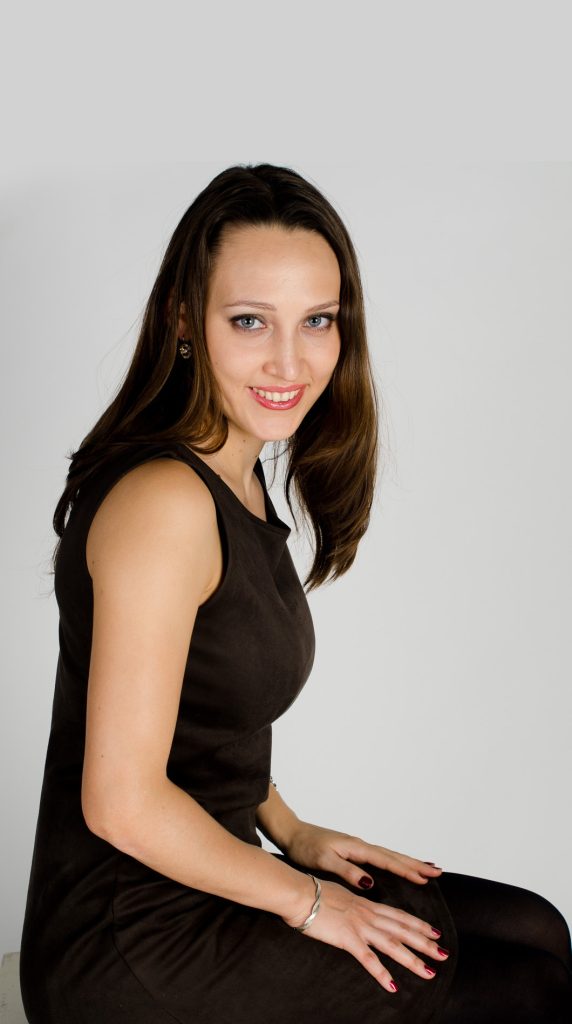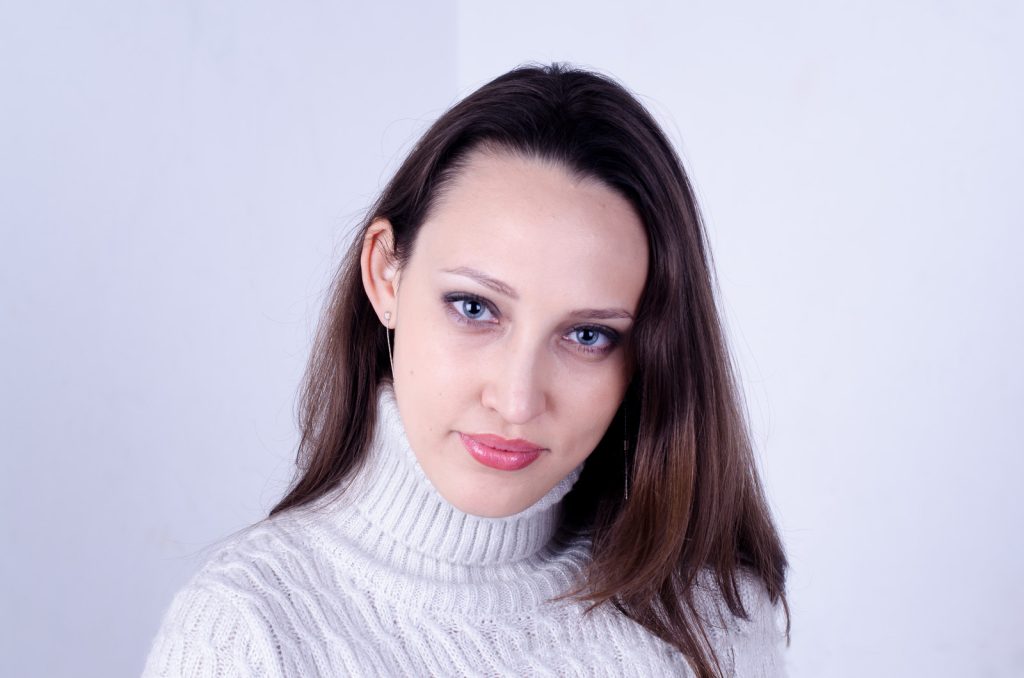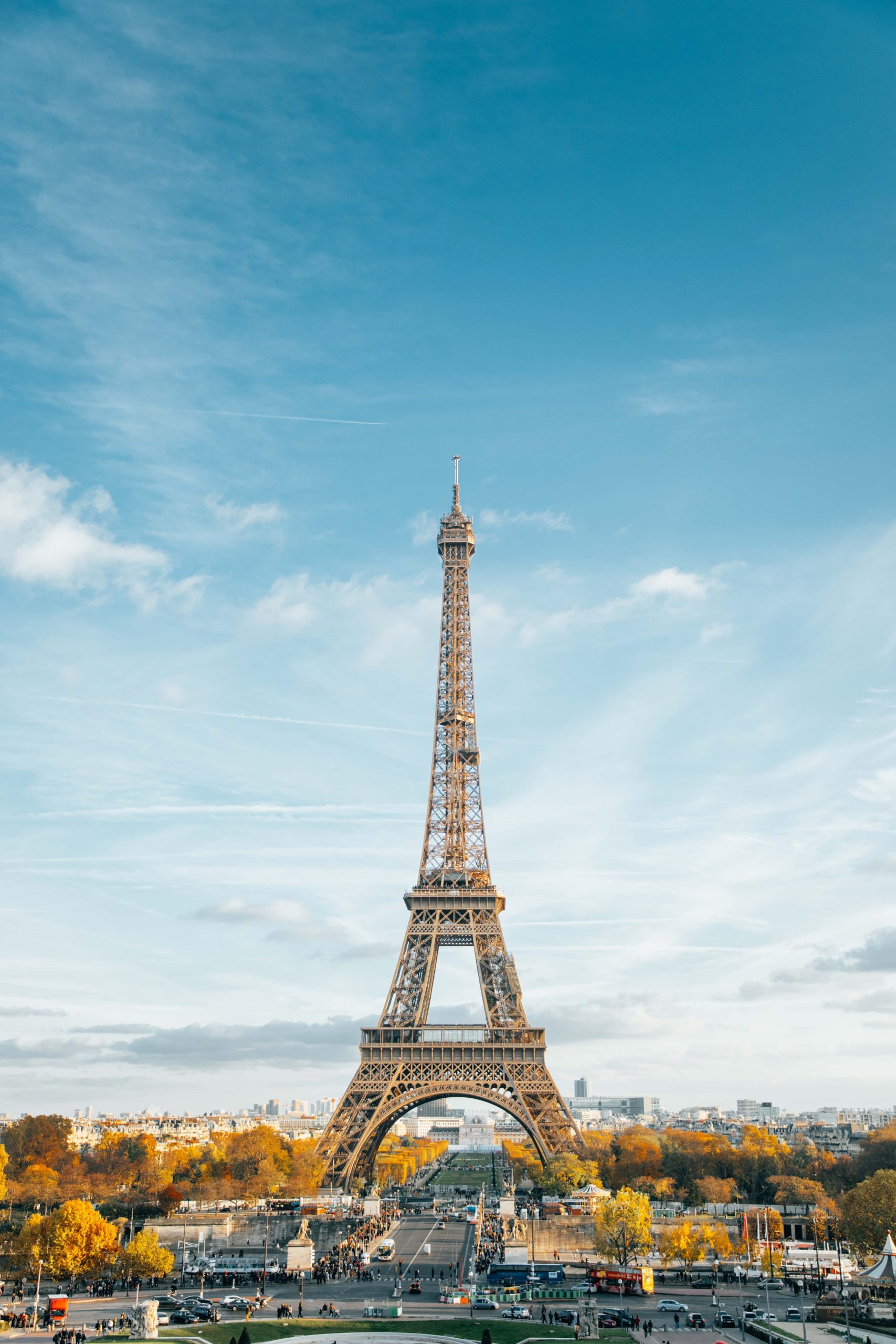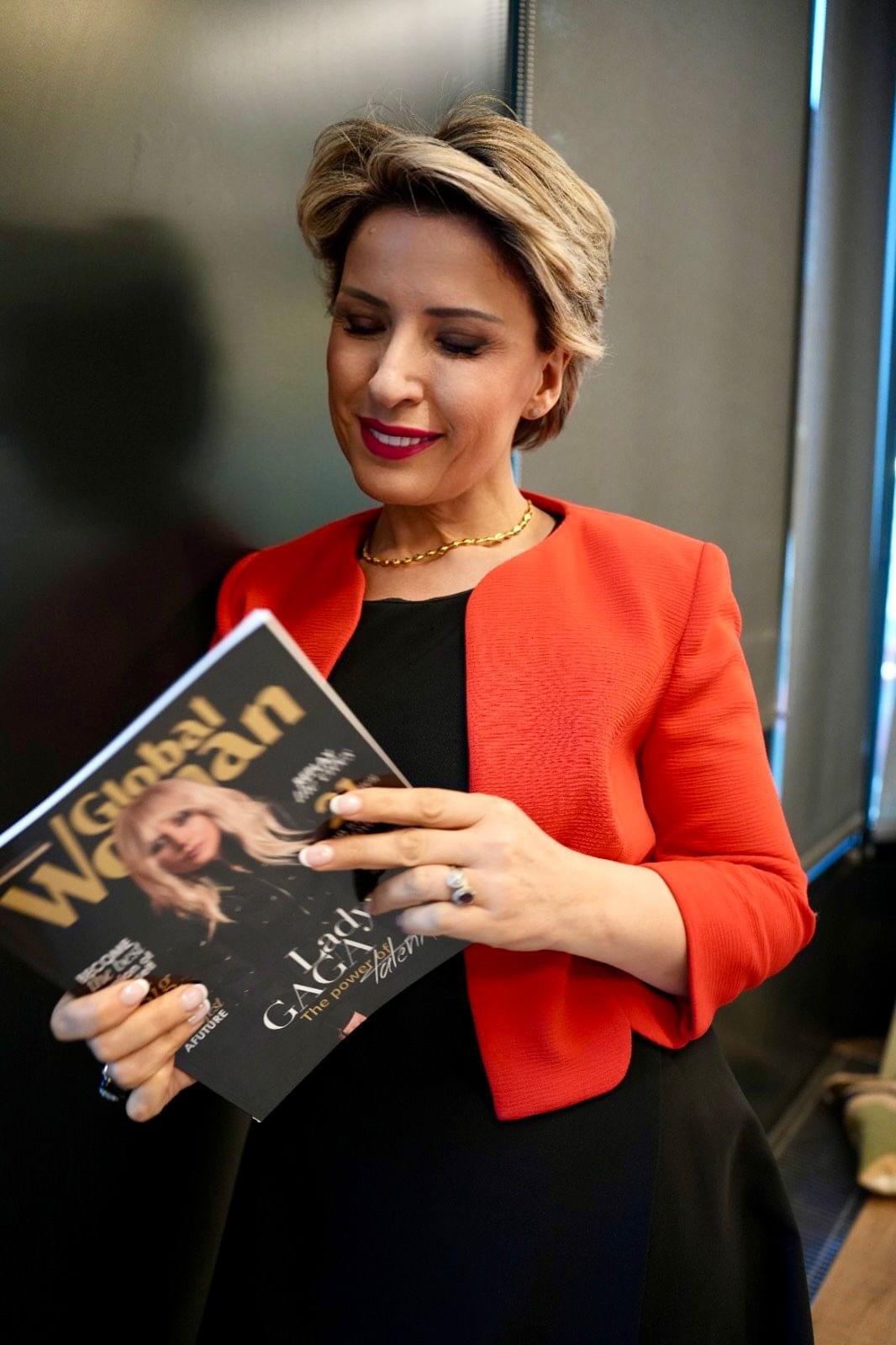
Dilyara Salakhova: Empowered by Action – Changing My Habits To Preserve the Planet
Dr. Dilyara, PhD, is a senior financial stability expert who has had a successful career in central banking. Dilyara’s modest origins did not stop her from pursuing her dream to make the world a better place. She came to study to France, completed her PhD in Economics, and worked at the central bank of France and the European Central Bank. Dilyara’s current goals lie within the realm of sustainable finance, helping foster funding of the transition, green projects, preservation of biodiversity and nature-based solutions for climate change. At the start of this year Dilyara also launched a podcast to raise awareness and encourage individual actions regarding climate change. Dilyara’s innovative podcast features experts from different areas of sustainability participating in a riveting discussion where they share their knowledge of problems, practical suggestions, and personal anecdotes of despair and success.
I am always surprised when I hear people saying, “I am like this, I was born like this, I can’t do anything about it.” These beliefs are so wrong, and they limit the person saying it. The change is not always easy, but I believe it is always possible. However, people resist change, and it is natural that they also resist changes related to leading a more sustainable lifestyle.
Dilyara Salakhova
1. Where does your interest in sustainability come from?
I have been very sensitive to nature since my early childhood. I was born in a small town in Russia and spent a lot of time in the countryside playing in the forest or by the river in the summer, while skiing in the fields in the winter. Early on I also had a very protective attitude towards nature that was partially influenced by education.
Collecting old paper, glass, metal for recycling, switching off the lights after all family members at home was my second nature. Even my shyness didn’t prevent me from telling off adults for throwing away rubbish in nature or in the street.
When I was fifteen, I moved to my first big city, Kazan, and then later to Paris. These moves brought many changes to my life, and I got disconnected from nature while my interests in environmental protection waned. However, realization of the seriousness of the current situation: climate change, the unsustainability of our societal lifestyle, mistreatment of animals—these factors revived my old passion and brought to the surface my old values. Acting now is the key to passing our planet on, alive, to the coming future’s generations.
2. Let’s start from the beginning as I can’t overlook the fact that you have done a successful career in male-dominated sector of finance and central banking. What sparked your decision to start a career working for a central bank?
“One can always find a job that one does not like, but one should at least try to get a job that one likes.”
Dilyara Salakhova
Making the world a better place has been my dream from early childhood, however, ways of achieving it were less clear. Being good at pretty much everything didn’t facilitate the choice either. I started with mathematics, continued with finance and economics, though I did always have a question about the right place for me.
Doing a PhD and working at a central bank never really crossed my mind until a professor mentioned that I could do a PhD at the central bank of France. That was a pivotal moment because since then I was sure that this was exactly what I wanted. To get a PhD position at Banque de France, I left a well-paid permanent job in a very good private company.
I had to go through unemployment and the insecurities of a foreigner without official status and income, and it took me one year to reach my goal. But when I made it to the Banque de France, I felt – deep inside – that I was at the right place. If there is one lesson that I learnt from this experience and that I would like to share, it is: “one can always find a job that one does not like, but one should at least try to get a job that one likes”.
3. How was this experience for you in the central banking? Was it challenging? What are the biggest challenges a woman faces in the finance world?
My experience in the central banking was amazing. I worked at the Banque de France first for nine years and then for three years at the European Central Bank. I loved the intellectually stimulating environment of research and the feeling that your work can make the world a better place. For many years, I worked on questions such as how to make the financial system safer to avoid financial crises like the one in 2008-2009; or how to scale up the sustainable finance needed for the transition to a low carbon economy.
I met wonderful people, very competent, resolute people with genuine and great values. There were indeed very few women – less than twenty percent – but for me, after studying mathematics and finance, it was almost normal. In fact, for a while even I did not realise that it was really a problem of having too few women in this profession.
I never questioned if the profession was for me as a woman because there were no other women there. I would have done it no matter what. Now that I realise how much more harmonious and pleasant it is to work with an equal presence of men and women, I passionately encourage girls to study economics and finance and join central banking. The European Central Bank also supports girls who are interested in pursuing such careers.
Multiple challenges exist for women in finance or in central banking as in other sectors. We know that only 23% of women make it to senior positions. Gender biases, motherhood, competition, amongst other factors, make it difficult for women to progress in their career. However, I really see the situation changing for the best, and the issue of gender equality being taken seriously.

4. You mentioned the work on sustainable finance. Can you explain in simple words what it is, why it is important and what you did?
Sure! The climate is changing, and the temperature on our planet keeps rising to alarming levels. To limit the temperature-increase to 1.5-2C and get prepared for the consequences of the changing climate, a lot of investments are necessary. For the transition to a low-carbon economy and for adaptation measures such as installing air-conditioning in buildings or constructing dams against floods we will need to see an influx of investment.
Sustainable finance refers to these investments. For example, I worked on expanding our understanding on how ethical investment funds and green bonds can help finance the transition. In simple terms, my research suggests that investors are ready to provide cheaper funding for green projects but only if the projects are credible. The regulation is key to set up the rules to provide this assurance to investors.
5. You had a successful career in central banking, and you have decided to take a sabbatical this year. What motivation is behind your decision?
“…there always comes a moment when you think that it is time to move forward, to move out of your comfort zone…”
Dilyara Salakhova
I guess that even when you enjoy your work, there always comes a moment when you think that it is time to move forward, to move out of your comfort zone, to explore other facets of life. This decision didn’t come overnight. It was an outcome of the process happening over the last 5-6 years.
First, I became progressively interested in environmental issues and sustainability and realised the urgency of the required action. Then, I started adopting a sustainable lifestyle myself: vegetarianism, zero waste, reduction in consumption.
Since 2019-2020 I have started working on sustainable finance and climate change risks for financial stability. Earlier this year, I launched a podcast “Sustain Change & Grow” to raise awareness about sustainability and the importance of individual actions to address climate change. And finally, I took a sabbatical to explore other ways I could contribute to addressing this existential threat to humanity.
6. At the beginning of this year, you have started your podcast on sustainability and climate change. What was the reason behind this? What is it challenging?
The key reason is that we are moving towards a catastrophe. In its recent report, United Nations Environment Program (UNEP) says that “The world is not on track to reach the Paris Agreement goals and global temperatures can reach 2.8°C by the end of the century”. This means a lot of suffering for millions of people, animals, and the whole planet as we will face increasingly large-scale natural disasters such as heat waves, droughts, floods, but not only these. An extremely sweltering summer this year in Europe is just the beginning. We need an urgent change in the way we live, but most people are still not feeling the urgency to act and prevent this catastrophe.
Most people are still asking what they can do individually given the size of the problem, while governments and businesses are not doing enough. The solution lies in the interaction of all acting agents. Governments must set up the right conditions for people and businesses to produce and consume sustainably; however ultimately it is up to everyone to change their own way of living to contribute to the solution. The sooner, the more chances humanity has to survive.
In my podcast “Sustain Change & Grow,” experts from different areas of sustainability – fashion, food, chemistry, environmental activism – share their knowledge of problems, offer practical suggestions, explore personal anecdotes and discourse on stories of despair and success.
I believe it is very important to share how various people act while facing this big problem, how they start from small acts, and how they make any change possible. And I really love what the Dalai Lama said: “If you think you are too small to make a difference, try to sleep with a mosquito in the room.”
And on your second question, I have to say yes! It was very challenging to start a podcast. Working with the camera, looking at yourself, listening to yourself, knowing that many other people will watch you—all of this was super scary. But I have met such amazing people, my guests, and got so inspired by their stories, by their actions, and their bravery, that I thought it is really worth sharing what they do. I hope very much that it will inspire other people to take concrete action too, either regarding their own lives or climate change.
7. Indeed, as you say, your podcast sheds light on stories of individual people and how they made change possible. Why is it so important for you?
I am a big adept of change, and mainly of changing things of and inside myself. I keep changing myself; I get rid of old useless habits, I introduce new habits, I change character traits that do not serve me well anymore. I believe in change and, particularly, in the general human capacity to change.
I am always surprised when I hear people saying, “I am like this, I was born like this, I can’t do anything about it.” These beliefs are so wrong, and they limit the person saying it. The change to be made is not always easy, but I believe it is always possible. However, people resist change, and it is natural that they also resist changes related to leading a more sustainable lifestyle.
However, once a person understands how to introduce one change in her/his life, once she/he gains confidence in being able to do it, then the sky is the limit.
8. What are your plans for this year and after?
I will continue working on my podcast, especially, now that I have more time for it. I will continue working on my research on sustainable finance and looking for solutions how to scale investments upward in green projects and green initiatives. I will continue sharing my knowledge by giving lectures and seminars. Definitively, I am ready to take on other opportunities to significantly contribute to the biggest challenge of modernity.
Find and listen to Dilyara Salakhova’s podcast: https://www.salakhova.com/podcast






